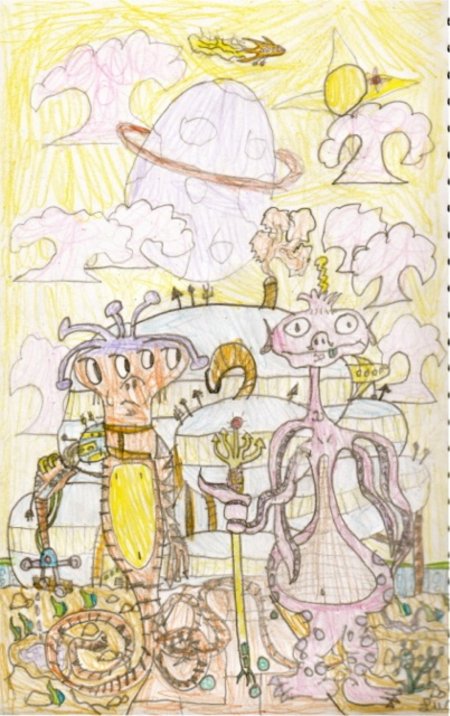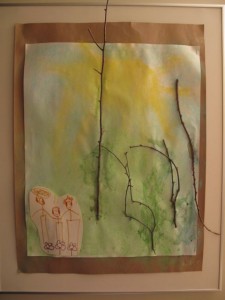In The News
Female Bullying: The Cruelty of Exclusion
“Even bullies wear pink shirts on pink-shirt day.”
I heard this sentiment expressed more than once this past week. And to a certain extent it’s true. It’s a day when we offer camouflage to those who don’t realize they are the bullies we’re talking about.
Even so, the day does shine a light on the topic. It inspires people to share their own experiences as Shane Koyczan has done this year with his spoken word poem (link below).
As my friend Bob has done on his blog.
And as I want to do here because sharing our stories helps to build awareness.
I won’t address overt bullying such as when the boys in high school taunted me with choruses of “areema, areema, areema” from the back of the class or a girl slapped me or another taunted me about the strap on my training bra.
I want to talk about the peculiarly female form of bullying which isn’t dealt with by initiatives such as pink-shirt day.
Why?
Because the majority of female bullying is insidious.
Women tend to organize in circles.* Girls refused entry into the circle or who have been dismissed from it are the ones, I would argue, who are often subject to bullying because they are isolated and excluded.
I was a new kid in Grade 8, my family having just moved to West Vancouver. Fortunately a strong friendship helped me survive the transition, but the friendship dissolved the following year and it was difficult to replace.
My memory of Grade 9 is one of tears: tears shed because I was always on the edge of the group. Sitting in the hall at lunch, for example, listening while the other girls made plans for the weekend and not being invited to participate.
Tears shed because I was alone.
In my second year at UBC, I joined a sorority. In hindsight, it may not have been the best fit for me. If being on the outside of the circle in high school is difficult, falling out of favour in a group of 40 or so is excruciating.
I remember carpooling with two of my sorority “sisters” although as I reflect on it today, I realize I must have done all the driving because I was the one with the car. On the way home one afternoon, we hatched a plan to get together later to watch a movie. I dropped them off and went home to get ready, sitting by the phone waiting for the call (yes, that’s how it was done in those days!). The call did come, but to cancel. Secrets are very hard to keep though and I found out later that the get-together had gone ahead as planned, but without me.
Trying to understand, I asked. The explanation? “Reema, when you ask someone how they are, you really mean it.” In other words, being with me was work. My interaction with others was based on more than a flippant line or light-hearted gossip or trivial talk.
I still am work and when I ask someone how they are, I still really mean it. My interest is in the whole person and their truth, not simply the mask presented to the world. I am a little too earnest to fit in easily and that has often put me, continues to put me, outside the circle.
But with the passage of time and the wisdom of experience, comes strength and acceptance, and a circle of true friends including that friend from Grade 8 whose friendship was reclaimed and a few from those sorority days.
It does get better, but it is never forgotten and it is not always easier.
Bullying requires constant and persistent vigilance, and that’s why it’ll never be eradicated simply by wearing pink one day a year.
*From the work of Deborah Tannen which I was introduced to in a writing workshop many years ago.
Three videos which touch the heart and mend the soul:
“It Gets Better” (Broadway sings for the Trevor Project)
It Gets Better – Royal Canadian Mounted Police (BC)
An informative interview on the topic of bullying:
Author Emily Bazelon on CBC’s Day 6
Crazy Little Thing Called Twitter And The FSAs
At first I lurked.
I’d log on to Twitter.com and scroll through the streams, fascinated.
I started to tweet in support of my campaign during the 2011 civic election and now it’s part of my daily routine.
With Twitter, I keep an eye on my community. I get news from around the world. I read analyses of issues and events from different perspectives. I interact with well-known figures and people in faraway places, opportunities I may never have had otherwise.
Twitter is also ugly at times, “nasty, brutish, and short” in the words of Thomas Hobbes. And while it is liberating to talk to so many so easily, Twitter is also constraining.
Why?
My Twitter account is a mirror of who I am as a whole person, but that whole person includes being a public figure. I have to be aware that although I am speaking personally, some may mistakenly take my views as those of the West Vancouver Board of Education. I have to be aware that while I distinguish between the different hats I wear in life and the various roles I play, others may not.

Which brings me to the Foundation Skills Assessment (FSAs), a test administered to Grade 4 and Grade 7 students throughout British Columbia.
Twitter streams were on fire about the FSAs recently, but I kept mum. I felt that whatever I said in 140 characters could be mischaracterized.
Here’s some of what I wanted to say.
As a parent, I had no objection to my child writing the FSA. As a Trustee, I see value in the data collected because it can be used to align resources with demonstrated need.
Here’s the problem: what we want the FSA to do and what is done with the FSA results have diverged.
FSA data, in addition to use by the provincial government and by school districts, is used by a third-party organization to rank schools.
The Fraser Institute rankings are myopic: they claim to present an overall picture of a school, but the rankings seem to be unduly weighted on one factor, FSA scores.
Rather than the FSA, why not invest in developing literacy screeners for key grades, the results of which would be privately held and exclusively used by the school, the district, and the student’s family? I’m thinking of something like the early literacy screening used for kindergarten students in West Vancouver.
And while I acknowledge that provincial measures are needed for accountability purposes, perhaps a better method of tracking student performance could be determined through a consultative process with key partner groups.
Perhaps by separating the two requirements — diagnostic and reporting — and by creating mechanisms for each, we would be spared the yearly rankling spectacle of school rankings.
At our January public board meeting, Sandra-Lynn Shortall, District Principal – Early Learning, paraphrased a conversation she’d had with Dr. Stuart Shanker. “Early intervention,” she said, “is not the answer to helping students address their needs, rather it’s continuous intervention and connectedness.”
Just as Twitter is not always the best mode of communication, the FSA may not be the best mechanism to match vulnerable or struggling students with the continuing supports they need to succeed in our public education system.
I think we can do better.
A Conversation Starter Or The End of A Conversation?
Ratified. That’s the word which characterizes this weekend for me. It denotes success and a goal accomplished. It indicates progress and sets a marker for the way forward.
The Agreement in Committee, a framework for bargaining which was fashioned in a collaborative effort between BCPSEA* and the BCTF**, was ratified this weekend at two separate meetings: the BCPSEA Annual General Meeting and the BCTF Representative Assembly.
This is a bold step for these two organizations. It sets the stage for positive dialogue before the start of labour negotiations. That doesn’t necessarily mean the discussions will be easier or decisions arrived at without difficulty; it does mean that the parties have opened a door to a respectful process, respectful interaction, and — I hope — results.
Yet this step forward may have been jeopardized given the startling turn of events on Thursday, January 24, 2013.
Why?
On Thursday, the provincial government released a document entitled “A Framework For Long Term Stability In Education” ) which came as a surprise to many of us who have a role to play in the public education system in British Columbia.
Although stakeholder submissions had been made by key partner groups on the issue of bargaining before the December holidays, this framework was much broader and incorporated many more issues than I believe were contemplated in those submissions.
While the goal of “stability” in education is admirable, and the narrative that has been designed to sell this new initiative may sound awfully good, scratch beneath the surface and many troubling issues emerge.
For example, why 10 years? Where is the business case for introducing a level of inflexibility which may take away from the employers’ ability to respond to changing circumstances and uncertain economic conditions? Given rapid changes in technology and the reassessment of education, which seems to be in progress in many parts of the world, proposing such a lengthy time span seems like building your foundation on shifting sands.
Premier Clark and Don McRae, the Minister of Education, have both spoken about the plan and the media, including the full array of social media, have played and replayed, digested and parsed their comments.
I also had the opportunity of hearing Minister McRae speak in-person at the BCPSEA AGM today.
He said, again, that this framework was just the beginning, but I see it as stalling momentum rather than encouraging it.
Rather than asking what the best way to fund the public education system may be, we are now debating the merits of establishing yet another separate fund to deal with specific aspects of program delivery and service provision.
Rather than asking what the best way to set educational policy may be, we are now debating who should sit at the table of the proposed educational council.
Rather than asking how to ensure the best working relationship between the parties who negotiate, we are now trying to guess why the government seems intent on stripping BCPSEA of its core mandate which is to bargain on behalf of the 60 school boards in the province.
This government-proposed framework, says Minister McRae, is a conversation starter.
I see it, unlike the now-ratified Agreement in Committee, as a conversation ender.
*British Columbia Public Schools Employers’ Association (https://www.bcpsea.bc.ca)
**British Columbia Teachers Federation (https://www.bctf.ca)
The Arts In Education – For A Better World
What a relief! Mark Mercer’s article in this morning’s newspaper reiterated that “universities are about education, about learning for the sake of learning” and that “university done rightly is great preparation for life”.
This was a welcome contrast to Margaret Wente’s recent diatribe against the Occupy protesters. With a swipe of her pen, she denigrates the value of the humanities. She seemingly fails to recognize that there are likely as many mechanical engineers out of work today as there are sociology students trying to find their way in life.
The business challenges we face and the deficiency in employment opportunities for young adults is not due to the educations they pursue; rather it reflects the reality of the structural weaknesses and flaws in our economies and societies.
And while we struggle to address these serious questions, as educators we need to ensure that we don’t lose sight of the value of the humanities in education and the value of the arts in our students lives.
 When I walk down the hallways at my son’s school, I’m always struck by the amazing artwork the students produce: artwork directly related to the curriculum, the topics they are studying, and their learning. A lot does get done and I think that a lot more needs to be done to without imposing a further burden of delivery on teachers.
When I walk down the hallways at my son’s school, I’m always struck by the amazing artwork the students produce: artwork directly related to the curriculum, the topics they are studying, and their learning. A lot does get done and I think that a lot more needs to be done to without imposing a further burden of delivery on teachers.
What if in-residence programs were implemented? For example, what if a published author served as writer-in-residence for the district? We have great visual artists on the North Shore — why can’t we look at having them conduct classes or organize field trips to their home studios throughout the year? Why can’t a professional dancer come in on an extended basis, once a week, to help choreograph a holiday show? Could we organize visits to Sinfonia’s (the North Shore’s professional orchestra) rehearsals? Why isn’t it automatically on the calendar every September and October for classes to take in sessions offered during the Vancouver International Writers Festival or Vancouver International Film Festival?
Some schools may be pursuing these sorts of projects and some schools aren’t. These type of initiatives, in my mind, would compliment teachers’ efforts and would be most viable in conjunction with greater support for specialist teachers (music, art, drama, dance, etc.) already hard at work. I also see that such programs would be most economically effective if delivered on a resource-sharing model between the district, the schools, and the Parent Advisory Councils (PACs).
I’m not advocating a specific approach or model because I don’t have all the information necessary to say which one will work the best. What I do know is that there is room to do more, much more. And we must do more because the arts, to me, are integral to the human experience and our children’s learning will be enhanced if art is more fully-integrated in their daily routines as a central component rather than as simply an adjunct.
I agree with Martha C. Nussbaum who writes in her 2010 book Not For Profit – Why Democracy Needs the Humanities:
“If we do not insist on the crucial importance of the humanities and the arts, they will drop away, because they do not make money. They only do what is much more precious than that, make a world that is worth living in, people who are able to see other human beings as full people, with thoughts and feelings of their own that deserve respect and empathy, and nations that are able to overcome fear and suspicion in favor of sympathetic and reasoned debate.”
I think there’s room to dispute her contention that the arts do not make money (look at this recent article by John Doyle on the profits made by private television broadcasters), but the point is that there is inherent value in the arts and humanities which we risk losing in a world solely focused on measurable utility and on money.
And isn’t that the ultimate purpose of education, as Nussbaum says, to “make a world that is worth living in, people who are able to see other human beings as full people”?
So let’s do that. Let’s make sure that our curricula do not sacrifice the arts. Let’s not make this a lesser world, but a better one.
Questioning Questions
I’m a big fan of questions. I’m sure that I could find a question to pose about almost any topic or situation, often to the annoyance of family members.
This ability to ask questions is what underpins our ability to be critical thinkers and critical thinking is being pinpointed, more and more, as an essential skill for students.
In political campaigns, questions are fundamental in the research we do to get to know our candidates in order to formulate our voting decision. Asking questions is key, I think, to a healthy democratic process. That’s why there’s such an outcry when we sense our ability to ask questions is being curtailed or when answers seem to be so scripted that they don’t sound sincere.
In my community, the West Vancouver Citizens for Good Government (WVCGG) is a group of citizen-voters which makes recommendations to the public on which candidates they feel would best-serve and represent the community in the role of municipal councillor or school trustee.
Their process is extensive: those candidates who opt to seek endorsement are interviewed by WVCGG executive members and the group also hosts a public All Candidates Meeting (ACM). A general meeting is held a week after the ACM where, after speeches from candidates, the WVCGG executive presents their endorsement recommendations. The members then cast their votes on which candidates they feel the organization should endorse.
At the October 27 endorsement meeting, I was very gratified when the WVCGG’s members voted to endorse my candidacy.

In my interview with the WVCGG executive, there were 12 questioners representing a broad cross-section of West Vancouver residents. Each question was posed by a different panelist, and the questions were spot on — they addressed some of the general issues in education as well as those which pertained only to West Vancouver.
It was a job interview with appropriately targeted questions. In contrast to the WVCGG’s job interview, The Vancouver Sun (the Sun), as part of their municipal candidates’ survey, asked a number of questions which I found disconcerting.
The Sun’s online survey featured a series of drop-down menus. While this may be the most efficient way of collecting data, I found the questions posed regarding ethnic background, religion, and birth country unacceptable.
Candidates should be judged on the basis of the stance they take on issues — not on whether or not they were born in Canada, for example. I feel that if the Sun wanted to identify areas where the political representatives do not reflect in one way or another the residents of their communities (as an editor at the paper indicated to me), then they should assign their reporters to investigate the matter and to file their stories accordingly.
The other rebuttal I received when I raised my concerns was that the questions asked were similar to those asked on the census. To me, that’s entirely different: census information is private, presented in the aggregate, and collecting the information is an officially sanctioned government initiative.
The Sun, by profiling candidates in their database based on elements such as ethnicity, religion, and place of birth, creates the impression in voters’ minds that these are factors upon which candidates should be judged. I don’t believe that’s true. If a voter, for example, were concerned about the religious bias of a candidate and how that might influence their action on an issue, the best way to ascertain that is by asking the candidate a question. We cannot assume that having candidates merely identify themselves as a member of a particular religion will tell us what their position or view is on a topic.
A candidate’s merit rests on their opinions, their experience, and their vision, not on the designation with which they may be labelled.
I urge all voters to take advantage of opportunities to meet their local candidates and to use the electronic tools at our disposal to make contact with them. Ask questions, but make sure they are the type of questions which will be of the most value to you in making your decision on election day.

